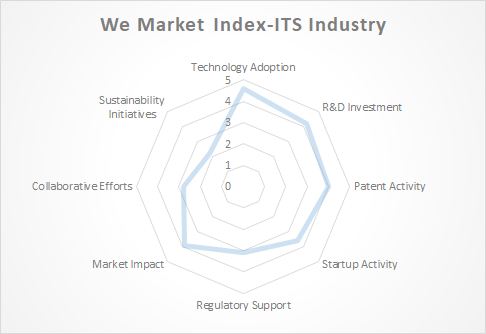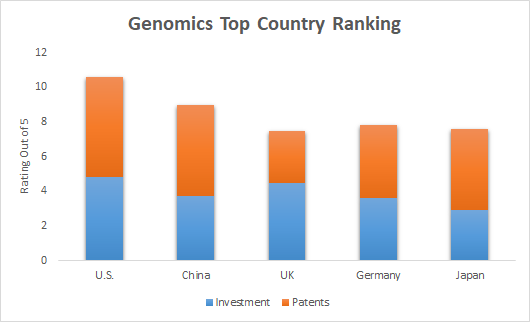Corporate Wellness: The Role of Technology in Modern Corporate Health Strategies
Holistic Health
at Work: The Comprehensive Approach to Corporate Wellness
The corporate wellness market is witnessing a significant evolution driven by various
key trends and initiatives that reflect the growing emphasis on employee health
and well-being. Companies are increasingly recognizing the importance of a
healthy workforce in enhancing productivity, reducing healthcare costs, and
improving overall job satisfaction. One of the predominant trends is the
integration of technology in wellness programs.
Digital health
platforms, wearable devices, and mobile health apps are becoming central to
corporate wellness strategies. These technologies enable real-time health
monitoring, personalized fitness plans, and easy access to wellness resources,
making it more convenient for employees to engage in health activities. For instance,
companies are leveraging wearable fitness trackers to monitor physical activity
levels, sleep patterns, and other health metrics, providing employees with
instant feedback and motivating them to maintain healthy lifestyles.
Another
significant trend is the holistic approach to wellness. Modern corporate
wellness programs are expanding beyond traditional physical health initiatives
to include mental health, financial well-being, and social connectedness.
Mental health, in particular, has gained substantial attention, especially in
the wake of the COVID-19 pandemic, which highlighted the critical need for
mental health support.
Employers are
now offering mental health resources such as counseling services, stress
management workshops, and mindfulness training. Financial wellness programs are
also being introduced to help employees manage their finances better, reduce
stress related to financial issues, and plan for their future. This
comprehensive approach ensures that employees' overall well-being is addressed,
leading to a more balanced and satisfied workforce.
In terms of
initiatives, many companies are implementing comprehensive wellness strategies
that encompass various aspects of health and well-being. Health screenings and
biometric assessments are often the starting point, providing employees with a
clear understanding of their health status and potential risks. Following these
assessments, employers offer a range of programs such as fitness challenges,
nutrition counseling, smoking cessation programs, and weight management
support. These initiatives are designed to promote healthy habits and prevent
chronic diseases, ultimately reducing healthcare costs for both employees and
employers.
Finally,
partnerships with external wellness providers and experts are becoming
increasingly common. Companies are collaborating with wellness consultants,
fitness trainers, nutritionists, and mental health professionals to deliver
high-quality wellness programs. These partnerships ensure that employees
receive expert guidance and support, enhancing the overall impact of wellness
initiatives.
In conclusion,
the corporate wellness program market is evolving rapidly, driven by trends
such as technology integration, holistic wellness approaches, personalization,
and adaptation to remote work environments. Initiatives focusing on
comprehensive health strategies, employee engagement, and fostering a wellness
culture are becoming the norm. As companies continue to prioritize employee
health and well-being, the corporate wellness program market is set to grow,
benefiting both employers and employees through improved health outcomes and
enhanced workplace productivity.
Case Study: TechCorp’s Comprehensive Corporate
Wellness Program
TechCorp, a
leading technology company, implemented a comprehensive corporate wellness
program to enhance employee well-being and productivity. Facing high healthcare
costs and rising employee stress levels, TechCorp sought to create a healthier
work environment.
Initiatives Implemented:
Digital Health Platforms:
TechCorp introduced a wellness app integrating fitness tracking, personalized
health plans, and telehealth services. Employees could set health goals,
monitor progress, and access virtual fitness classes and mental health
resources.
Holistic Wellness Approach:
Beyond physical health, the program included mental health support with
counseling services, stress management workshops, and mindfulness sessions.
Financial wellness seminars helped employees manage personal finances and
reduce related stress.
Personalized Wellness Plans: Using data analytics, TechCorp identified common health risks and
tailored wellness plans accordingly. Biometric screenings and health
assessments provided personalized insights, guiding employees towards specific
health interventions.
Engagement through Gamification: TechCorp gamified wellness activities, introducing challenges and
competitions with rewards for participation and achievement. This fostered a
sense of community and motivated employees to stay active.
Results:
Within a year,
TechCorp saw a 20% reduction in healthcare costs, a 15% increase in employee
productivity, and a significant improvement in overall employee satisfaction
and engagement. The program's success underscored the value of a comprehensive,
technology-driven approach to corporate wellness.
Technology Perception in the Corporate Wellness Program Market
The perception
of technology in the corporate wellness program market is largely positive,
driven by its ability to enhance accessibility, personalization, engagement,
and overall effectiveness. Employers and employees alike view digital health
innovations as crucial for modern wellness initiatives. Here’s an overview of
the current perceptions and supporting statistics:
Accessibility and Convenience:
Perception:
Technology is seen as a tool that democratizes wellness by making programs
accessible to all employees, regardless of location.
Statistics: A
survey by Gartner found that 80% of companies plan to increase their investment
in digital health solutions to support remote and hybrid work environments.
Personalization:
Perception:
Personalized wellness programs are more effective in engaging employees and
addressing their specific health needs.
Statistics:
According to a report by McKinsey, personalized health interventions can
increase employee participation in wellness programs by up to 50%.
Real-Time Feedback and Monitoring:
Perception:
Real-time data from wearables and health apps empower employees to take control
of their health and make informed decisions.
Statistics: A
study by PwC found that 70% of employees using wearable devices reported
improved health awareness and behaviors.
Challenges and Considerations:
Data Privacy and
Security: Concerns about the privacy and security of health data are
significant. Companies must ensure compliance with regulations like GDPR and
HIPAA to protect employee information.
Continuous
Engagement: Maintaining long-term engagement in wellness programs requires
ongoing innovation and incentives. Initial enthusiasm can wane without
sustained efforts to keep employees motivated.
Conclusion:
In summary,
technology is widely perceived as a critical enabler of modern corporate wellness
programs, offering benefits that enhance accessibility, personalization,
engagement, and overall health outcomes. Supporting statistics underscore the
positive impact of digital wellness solutions on employee health and
organizational productivity, highlighting the transformative potential of
technology in this market.




